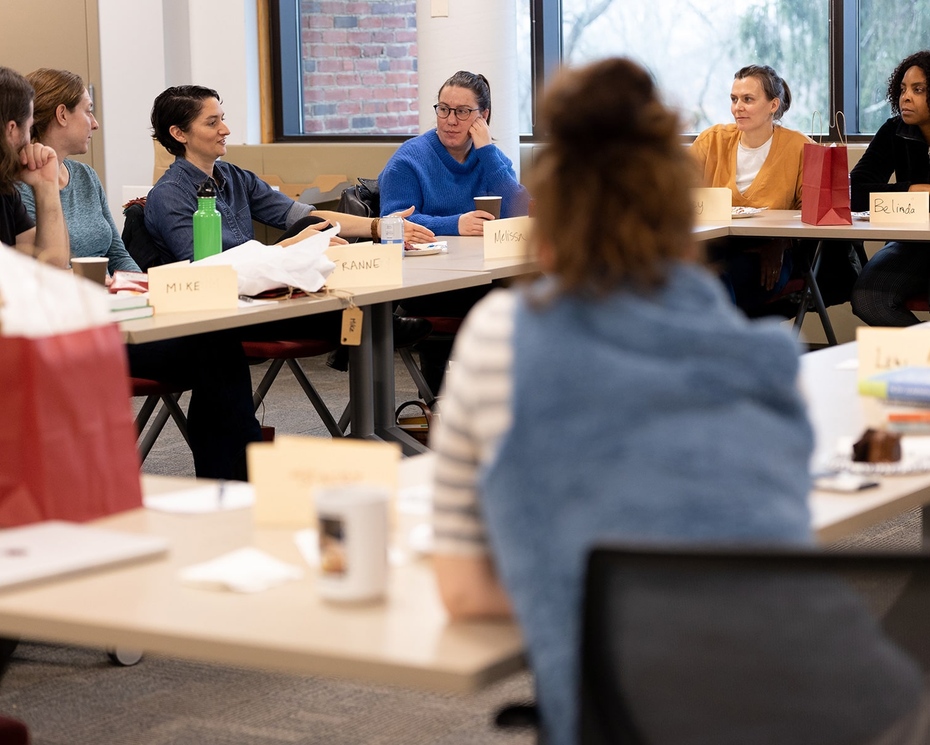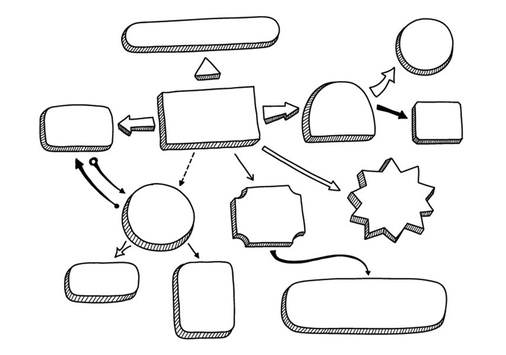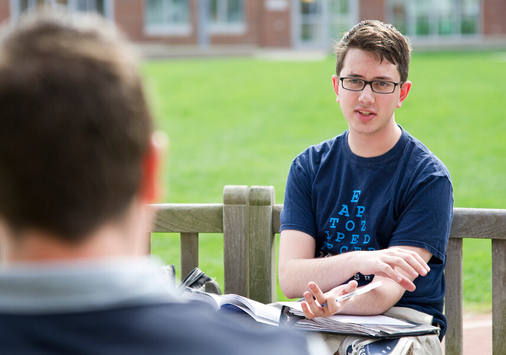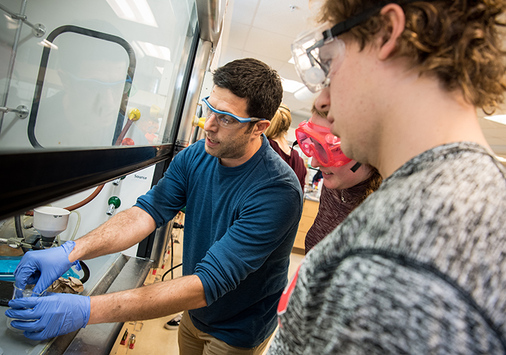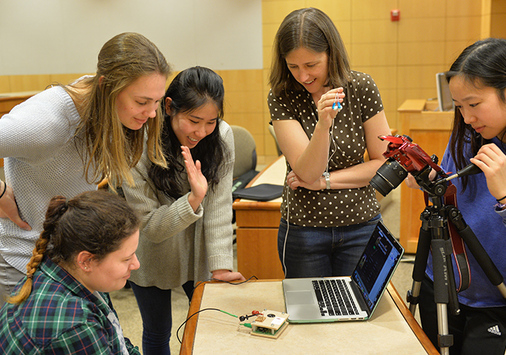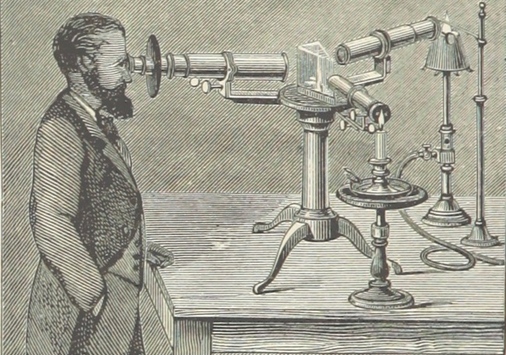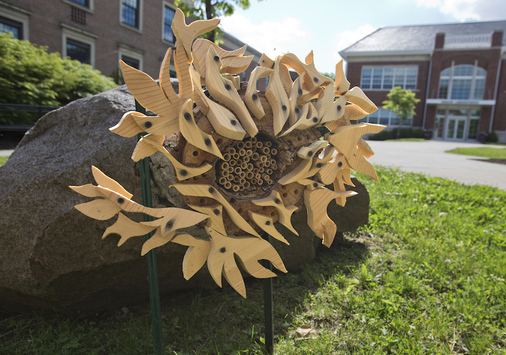While the recent heatwave has me wondering, fall really is just around the corner. And with the change of seasons I’m feeling nostalgic, caught up in remembering how a new school year overflowed with possibility, expectation, and the excitement of learning new things. Do you remember?
Although the semester is just getting started, I’ve noticed (really, felt) something different this fall. Students, faculty, and staff all seem keen to dive headlong into the expectant possibilities of a new academic year. The First Year Induction Ceremony amplified our deepest values; friends across campus are trying new strategies to capture students’ interest and promote deep learning; the buildings and grounds look beautiful; and even the parking situation seems improved.
And a new school year also can be fraught with challenges. Some of these may be personal; others concern our campus-wide struggles to live into our shared values: everyone belongs here; teaching and learning are fundamental to who we are; ideas have consequences; and that, through taking our differences seriously, we have genuine opportunities to genuinely acknowledge one another and embrace possibilities we cannot yet name.
Amidst a new academic year, I’m nostalgic for another school where questions of belonging, learning and teaching, the force of ideas, and efforts to recognize the good in those around you assumed compelling urgency. That’s right: I’m thinking about Hogwarts and Harry Potter and his friends.
Maybe my nostalgia is infused by the vacation I took with my family this summer to Universal Studios, where Harry Potter World absolutely lived up to the hype. (Two facts: Florida is hot; Butterbeer is really sweet.) But I think the longing I’m feeling for J.K. Rowling’s fictional school runs to something deeper. Three quotes capture best what I’m thinking:
- “Fear of a name only increases fear of the thing itself.” — Hermione Granger, Harry Potter and the Chamber of Secrets
This year, the Center for Learning and Teaching is immersed in a year-long theme of resilience. One way that theme has taken shape is through the capable leadership of Emily Nemeth and David White, who are co-leading a Pedagogy and Resilience Reading Group. Attendance has been robust, and their questions and deft facilitation have invited participants to thoughtfully and honestly name hard things, things that sometimes can be scary to say out loud, like: “My students don’t seem to want to read and discuss what I assign.” Or, “The sheer volume of the work we have to do has increased so much, and keeping up is hard.” “Or, “I don’t know how to help students who are really struggling.” Hermione’s insight reminds me that resilience depends, in no small part, on giving names to the things we’re struggling with and, most importantly, sharing those names with others as part of driving back what scares us and moving toward relationships of mutual support and professional regard.
- “But you know, happiness can be found even in the darkest of times, if one only remembers to turn on the light.” ― Albus Dumbledore, Harry Potter and the Prisoner of Azkaban
Dumbledore’s remark rings aphoristic and may sound like something that can be easily dismissed. Then I remember: The work we do here is hard, and sometimes it can feel like nothing we try strikes the light we hope may entice our students to see the connections between the ideas we’re exploring with them and the lives they will make. Sometimes, the weight of the world feels so heavy it seems the door of my classroom cannot keep the darkness at bay. And it’s also true: Light is all around, if I only look for it, and remember the people and the resources available across campus committed to offering unflagging support. We’re not alone in this work.
- “We’ve all got both light and dark inside us. What matters is the part we choose to act on. That’s who we really are.” ― Sirius Black, Harry Potter and the Order of the Phoenix
I live inside my head a lot, pondering the weight and worth of ideas, thinking about learning goals and lesson plans, and sometimes contemplating things that don’t encapsulate my better angels: A student whose frequent tardiness really frustrates me; the sheer number of papers I have to grade, when that grading seems not to affect my students’ ability to write better; or the idea that, left to my own devices, I just as soon cancel class and binge-watch Stranger Things. These are the sorts of frustrations that mark our day-to-day jobs (yours may be different, but we’re in this together). Yes, Sirius Black was talking about something altogether different, and graver. Time and space preclude a meditation on original sin or the teachings of John Calvin (and colleagues across the campus are breathing sighs of relief about that!), but what may be worth remembering is that we can choose: Each day our words and actions signify that we have made choices on behalf of the values of shared inquiry and mutual regard or given in to indifference and laziness, easy options both, instead of plying the tools of curiosity, reflection, and risk that learning requires. We can always be better.
I get it. Hogwarts is a fictional school. Harry, Hermione, Ron, and Dumbledore are fictional characters. Yet they compel us to think hard about our shared work. (And, for my money, Alan Jacobs’s writing on the series is among the very finest.) And what they model about learning— sometimes it hurts; that it’s best done in the company of good friends and those you care about; that it requires courage—seem like lessons worth remembering. Maybe the magic we’re searching for is within each of us. We just have to listen, look, and believe.
